You are here
Filmography
Featuring well-known L.A. Rebellion works alongside rarely seen student films, this body of work represents not only the originality of the individuals whose names are on them, but a collective vision as well. Across the two decades during which they made their presence felt at UCLA, and in the decades since, individual L.A. Rebellion artists have focused on diverse topics and responded to evolving political and artistic thought through their work. Explorations of class, considerations of historical legacies, stories attentive to concerns of local communities and appreciations of other Black arts are only some of the areas of exploration. The films also display a diversity of forms, from irreverent reconfigurations of well-worn genre types, to groundbreaking experiments with cinematic language. Certain works, long out of circulation, represent rediscoveries and will certainly lead to much future scholarship.
Learn more about the UCLA Film & Television Archive’s ongoing “L.A. Rebellion” inititiative.
| Title | Year | |
|---|---|---|
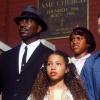 |
Selma, Lord, Selma Charles Burnett’s Selma, Lord, Selma chronicles the history of the 1965 Selma to Montgomery marches. Through the perspective of a young girl learning about courage, bravery and compassion, Selma, Lord, Selma celebrates the life and legacy of Dr. Martin Luther King Jr. and the civil rights movement’s fight for freedom for all Americans. |
1999 |
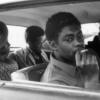 |
Several Friends In Charles Burnett’s first student film, Several Friends, a group of eccentric and endearing young people converse in a variety of everyday settings. |
1969 |
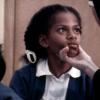 |
Shipley Street An African American family sends their child to an all-white parochial school, where she is confronted with harsh discipline and racist attitudes in this drama by Jacqueline Frazier. |
1981 |
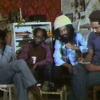 |
Shopping Bag Spirits and Freeway Fetishes: Reflections on Ritual Space Barbara McCullough converses with members of L.A.’s vibrant black arts communities to explore the role of ritual in black life and art. Interviews are combined with still photographs, colorful video effects, music by Don Cherry and footage from McCullough’s landmark work, Water Ritual #1: An Urban Rite of Purification. |
1981 |
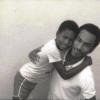 |
The Single Parent Family: Images in Black The Single Parent Family: Images in Black consists of interviews with African American single parents. |
1977 |
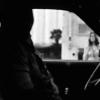 |
69 Pickup Filmmaker Thomas Penick explores race, gender and violence in this provocative, disturbing drama set on a hot, summer day in 1969. When a woman accepts a ride from two men at the corner of Western and Adams, the encounter quickly turns ugly, venturing into painful, surreal territory. |
1969 |
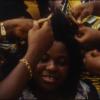 |
The Snake in My Bed In common with many L.A. Rebellion films, Snake touches on such themes as institutionalized racism, colonialism and the plight of women of color. Narrated in the first person by the filmmaker as an epistle to her son, The Snake in My Bed tells Diegu's story as a Nigerian woman in Lagos who discovers her German husband is a bigamist and follows her journey to have their son officially recognized as a German citizen from Neustadt am Main, since, according to Nigerian (i.e. Ibo) custom, a person’s identity can only be defined by the home village of the father. |
1995 |
 |
Something Special A documentary by Denise Bean that follows an African American woman, Donna Hill, and her young hearing-impaired son, Taj Hill-Hubbard, as they benefit from the spoken language training offered by the John Tracy Clinic. |
1977 |
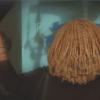 |
Spirits of Rebellion: Black Cinema from UCLA This documentary by Zeinabu irene Davis provides intimate access to several filmmakers identified with L.A. Rebellion, including Charles Burnett, Ben Caldwell, Julie Dash, Haile Gerima, Barbara McCullough, Billy Woodberry and Davis herself. The film’s topics include the origins of the name “L.A. Rebellion” and the intriguing question, “What is a black film?” |
2015 |
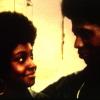 |
Tamu Tamu begins with the Malcolm X quote, “We don’t see any American dream. We’ve experienced the American nightmare.” In the film, a young African American man drives through South Central thinking about revolution, Malcolm X, racism, capitalism, and war in Vietnam. Midway through, the film switches over to the thoughts of a young African American woman who is thinking about revolution and Angela Davis. Tamu touches on themes of crime, drug use, and revolution.
|
1970 |
Pages
To report problems, broken links, or comment on the website, please contact support
Copyright © 2025 UCLA Film & Television Archive. All Rights Reserved






 Mobile Navigation
Mobile Navigation

